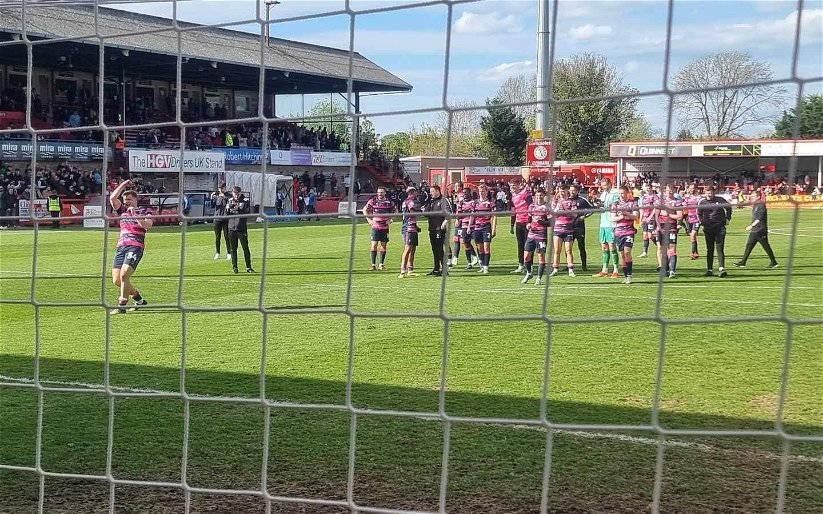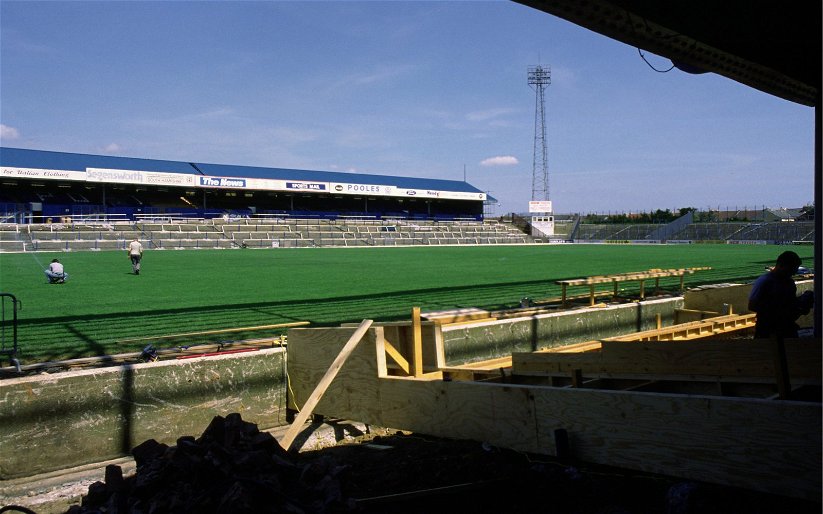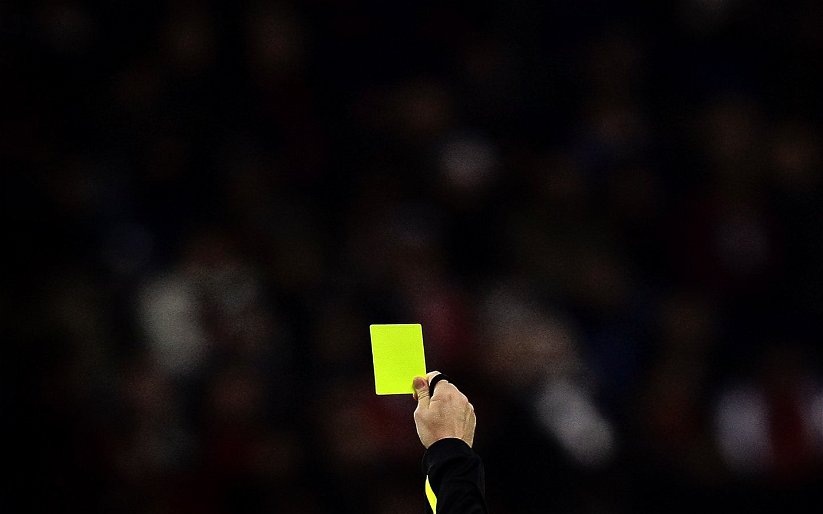Although he is one of the least experienced managers in terms of English football, there will be no manager in League One this season operating under a higher degree of expectation than Sunderland’s Jack Ross. A club of that magnitude is a fish out of water in the third tier, and there is an imperative to return to the higher levels as soon as possible. Last season produced the lowest final league position in the club’s history despite collecting as many points as League Two champions Lincoln (85). Ross has received the backing of owner Stewart Donald for the time being, although rumours of an imminent takeover have been rife this summer. He does have a record of success in adversity, an attribute that may come in handy through the coming months.
Jack Ross was born in Falkirk in June 1976 and spent his formative years immersed in the local football scene. He would watch junior side Camelon, and also attend matches at Dundee with one of his friends despite living in Falkirk. It was at Dundee that his own playing career began, signing schoolboy forms as a young right-back at thirteen and progressing through the youth structure. He was released at the end of the 1993-94 season at the age of eighteen, and decided to go to Heriot-Watt University for four years to study economics. At the same time, he continued to play football part-time. After brief spells with Forfar Athletic and junior side Lochee United, he returned home to play for Camelon while still pursuing his studies.
It was a life he did not enjoy, as he really wanted to be a professional footballer. It is to his credit that he did not give up on that ambition and rebuilt his career at the junior club. On 12 May 1996 he appeared in the final of the (OVD) Scottish Junior Cup, the equivalent of the FA Trophy in England, but unfortunately cup holders Camelon were beaten 2-0 by Tayport in extra time. He did so well during his time at Camelon that he was called up by the Scotland Junior FA (equivalent to England C) in 1999 for four games. Ross scored on his debut, in a benefit match in Cumnock on 21 February, but it was not classed as an international. He did win two caps against Northern Ireland (won 4-0) and Republic of Ireland (drew 1-1, lost on penalties) in the annual quadrangular tournament on 16 and 17 April.
All of this drew the attention of Second Division side Clyde, who signed Ross on part-time terms that summer. Ross went straight into the side and became almost ever-present over the next five seasons, eventually converting to midfield. It was a great first season as Clyde won the Second Division title with a 4-1 win over Arbroath in the penultimate game. At the end of the season he signed full professional terms with Clyde at the age of 24. They had comfortable mid-table finishes in their first two seasons in the First Division, and under Ross’ captaincy finished second in 2002-03 behind champions Falkirk. They came very close to winning promotion to the SPL in 2003-04, leading the table for long spells. A win over main rivals Inverness in the penultimate game of the season would have taken the title, but Clyde lost 2-1 to effectively hand the title to their visitors. A 5-2 win at Brechin on the final day was in vain as Inverness took the title with a 3-1 win over St Johnstone. It was also to prove Jack Ross’ farewell to Clyde, as he had already signed a pre-contract agreement with League One Hartlepool on 23 April 2004 on a two-year deal.
Ross amusingly refers to his time at Hartlepool as ‘my adventure abroad’, but it was not a happy experience. Ironically, the 2004-05 season would prove to be the best in Hartlepool’s history with a sixth-place finish resulting in a play-off final defeat to Sheffield Wednesday. However, the season for Jack Ross had already ended by then, courtesy of ankle ligament damage suffered against Stockport on 26 February 2005. The injury was initially expected to keep him out for six weeks, but he never appeared for them again due to personal reasons. He had never really settled in the area, and his partner Heather had returned home to Glasgow. It was not the ideal domestic arrangement, and Ross wanted to go home too. There were offers on the table from Scottish clubs, but the chairman and manager at Hartlepool dug their heels in and they ended up at loggerheads. Having got married during the close season, Ross refused to return to Hartlepool. The dispute was not resolved until 31 July 2005 when a financial arrangement led to the second year of his contract being cancelled by mutual consent. He made 30 appearances for Hartlepool, scoring no goals.
There had already been plenty of interest in Ross in the interim, and on 9 August 2005, he signed a one-year deal with home town club Falkirk, just promoted to the SPL as First Division champions. It was a good time to join the club, with Premier League football in the offing and a smart new stadium to play in. Falkirk remained in the bottom three for the majority of the season but were never in danger of relegation due to the poor form of Paul Lambert’s Livingston. They finished seventh in 2006-07 including home wins over both Rangers and Celtic, and also beat Celtic in the quarter-final of the League Cup before losing 3-0 to Kilmarnock in the semi-final. Now captain, Ross missed three months of the 2007-08 season with a double hernia as Falkirk finished seventh again. On 30 April 2008, he signed a pre-contract agreement with St Mirren on a two-year deal, and departed Falkirk having made 89 appearances. Curiously, his two goals for the club came in successive matches at the start of April 2006.
St Mirren got off to a poor start in his first season of 2008-09, winning just three of their opening sixteen games before four straight wins lifted them off the bottom of the table. In a bizarre season, they then went twelve games without a win to plunge themselves back into relegation danger. Ross had the pleasure of appearing in the first game at the club’s new St Mirren Park ground on 31 January 2009, a 1-1 draw with Kilmarnock. A 2-0 win over relegation rivals Falkirk in the penultimate game lifted them off the bottom again, and they survived on goal difference despite losing 1-0 at Hamilton on the final day, who could also have gone down. Despite their poor league form, St Mirren beat Celtic in the SFA Cup quarter-final before losing in the semi-final to Rangers. The 2008-09 season ended with a significant personal achievement when he was called up by Scotland B for a game against Northern Ireland B on 6 May. In one of football’s happy coincidences, the game was played at Broadwood Stadium, home of former club Clyde where he had played for five years. It came almost exactly ten years after Ross had won his two caps for the Scotland Juniors side, and Scotland won the game 3-0.
The 2009-10 season also produced a struggle for survival, with safety not confirmed until a 0-0 draw at Hamilton with a game remaining. The highlight of the season came on 21 March 2010 as St Mirren took on Rangers in the League Cup Final. St Mirren missed a huge opportunity to win the cup for the first time in their history, as Rangers were down to nine men by the time Kenny Miller headed a late winner. Little did he realise at the time, but Ross would make only another half a dozen appearances as a player, although there were two more stops along the way. Released at the end of the 2009-10 season at the end of his two-year contract, he signed a one-year contract with Hamilton Academical on 5 July 2010. Things did not go well, and he played only two games, both 4-0 defeats, and he was released from his contract the following week by mutual consent. On 15 September 2010, he signed for Dunfermline Athletic on a one-year deal. Unfortunately, he incurred a persistent knee injury in training soon after joining, and he never made an appearance for Dunfermline. Despite having an operation, he kept breaking down. On 4 February 2011, he announced his retirement from playing on medical advice.
Like the majority of players faced with retirement, Ross was unsure what to do next. At the beginning of 2012, there were discussions over making a comeback as a player with Dumbarton, but he was not sure the injury would stand up to even part-time football. Instead, he became nominally player-coach and assistant manager to Alan Adamson on a wage of £100 per week. He had completed his UEFA A and B Licences during his playing days, and Dumbarton was as good a place as any to start. The wage was a problem of course, and everyone at the club had jobs outside of football. By this stage, Ross was chairman of the PFA Scotland players’ union, and worked for them in various fields in addition to a role with the international players union FIFPro.
Dumbarton finished the 2011-12 season by qualifying for the Second Division play-offs, where they beat Arbroath 2-1 on aggregate in the semi-final. Dumbarton then won promotion with a 6-2 aggregate win over Airdrie, although Airdrie were to join them in the First Division after Rangers were liquidated. Dumbarton had a poor start to 2012-13 and were bottom of the First Division with two points from nine games by the time Alan Adamson was sacked on 22 October 2012. Ross took over as caretaker manager while the club searched for a replacement, and won one and lost three of his four games before reverting to his former role under new manager Ian Murray. The new man had an immediate impact, winning five of his first six games, and Dumbarton eventually climbed well clear of relegation in seventh. They had a very good season in 2013-14, finishing four points short of the First Division play-offs in fifth. They also reached the quarter-finals of the SFA Cup before losing by a single goal at Aberdeen.
On 1 July 2014 Ross was appointed manager of Heart of Midlothian’s U20 side together with a management function for the academy and a passing involvement with the first team. He was forced to give up his work with the two players’ unions, but the opportunity to become involved with professional football again was too great. Unfortunately, things did not go so well at Tynecastle, with the Hearts U20s finishing third from bottom of the SPFL Development League in 2014-15. The 2015-16 season was no better, and Ross left Hearts on 13 October 2015 after one win from the opening six games.
Despite the lack of success at Hearts, he had enjoyed his time as assistant at Dumbarton and believed he had the makings of a good manager. He had also discovered at Hearts that managing a development squad was not the same as managing a professional team, and that was to be his next move. On 15 December 2015, he was named manager of Alloa Athletic, who were bottom of the Scottish Championship with eight points from seventeen games. Ross lost his first game 2-0 at home to former club St Mirren, and that set the tone for the rest of the season. Alloa won just two more games, although the last five games were unbeaten including a 1-1 draw with Rangers in front of 50,000 at Ibrox. Alloa were relegated in bottom place, ten points adrift of the next team. Having signed a new contract at the end of April 2016, Alloa started the 2016-17 season with five wins from their first six league games. Handily placed in third, a promotion bid looked on the cards, but everything changed when an opportunity arose that was too good to turn down: on 4 October 2016 he was appointed manager of former club St Mirren.
St Mirren were bottom of the Championship with four points from their opening eight games. Ross lost his first six games before two successive wins sparked a revival. In spite of some poor league form, Ross led his side to the final of the Scottish Challenge Cup where they were beaten 2-1 by Dundee United. They also reached the quarter-finals of the SFA Cup, losing 4-1 at Celtic. Saints lost just two of their final fourteen games to provide hope for a good season in 2017-18. During the summer of 2017, Ross was approached to become the manager of his first club Dundee, but he decided to remain at St Mirren because he believed he could take the club back to the Premiership. It proved a wise decision, as his side swept to the title in his first full season at St Mirren Park. They finished a full twelve points clear of second-placed Livingston, an achievement that won Ross the Scottish Championship Manager of the Year award and he was also named overall PFA Scotland Manager of the Year.
It was inevitable that bigger clubs would come calling, and Ross was linked with a number before he was appointed manager of Sunderland on 25 May 2018. Having suffered two successive relegations from the Premier League, Sunderland found themselves in the third tier for only the second time in their history. They remained in contention for automatic promotion for the vast majority of the season, and lost just two of their first forty games. There was also a run to the final of the Checkatrade Trophy where they went down 5-4 on penalties to Portsmouth in front of 85,000 at Wembley. The run almost certainly affected their league form, and Sunderland won just one of their last six games to finish fifth. Too many draws were the problem: they lost only five times, but drew nineteen. Sunderland gained revenge on Portsmouth in the play-off semi-final with a narrow 1-0 aggregate win, but their second visit to Wembley in two months ended in another defeat, losing to the last kick of the game to Charlton. Chairman Stewart Donald has spoken of 100 points in 2019-20; one hopes he will be satisfied with promotion instead.
Jack Ross is an interesting character. He is known as one of football’s readers, with a particular penchant for books on leadership and others with an intellectual bent. He is also one of football’s writers, having written a series of articles for the BBC between 2010 and 2011. But it is little known that he is also the author of two books for children. Their titles? Alfie The Adventurous Winger and Calum The Courageous Keeper, and there are three more already written and in the pipeline. But it is promotion for Sunderland in 2020 that is the sole focus at the present time, and Ross will be trying his best to prevent Jack The Journeyman Manager from becoming book number six.

Key:
P = Promoted; R = Relegated; SF = Lost in play-off semi-final; F = Lost in play-off final; PO = Won play-off final; D = Demoted.
Figures are league games only; cup matches and play-offs are not included.
League position shown is either the position at the end of the season or the position at the time of departure.

Writer: Scotimp
Who Are The League One Managers? No.21: Jack Ross (@SunderlandAFC):https://t.co/c8tu2KYExM#SAFC #Sunderland #SkyBetLeagueOne
— Vital Lincoln City (@VitalLincoln) July 29, 2019
https://www.facebook.com/VitalLincolnCity/posts/2322494931120072



